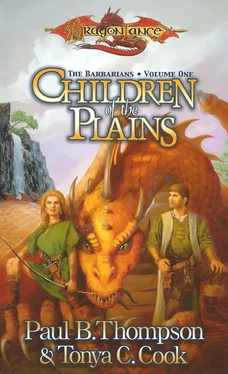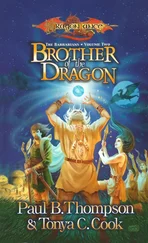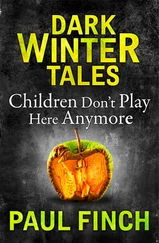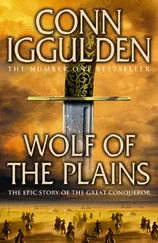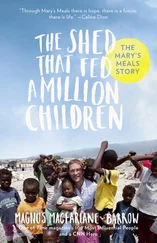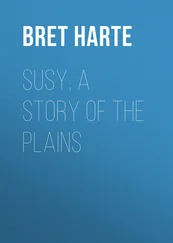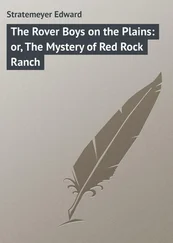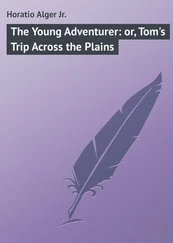Paul Cook - Children of the Plains
Здесь есть возможность читать онлайн «Paul Cook - Children of the Plains» весь текст электронной книги совершенно бесплатно (целиком полную версию без сокращений). В некоторых случаях можно слушать аудио, скачать через торрент в формате fb2 и присутствует краткое содержание. Жанр: Фэнтези, на английском языке. Описание произведения, (предисловие) а так же отзывы посетителей доступны на портале библиотеки ЛибКат.
- Название:Children of the Plains
- Автор:
- Жанр:
- Год:неизвестен
- ISBN:нет данных
- Рейтинг книги:5 / 5. Голосов: 1
-
Избранное:Добавить в избранное
- Отзывы:
-
Ваша оценка:
- 100
- 1
- 2
- 3
- 4
- 5
Children of the Plains: краткое содержание, описание и аннотация
Предлагаем к чтению аннотацию, описание, краткое содержание или предисловие (зависит от того, что написал сам автор книги «Children of the Plains»). Если вы не нашли необходимую информацию о книге — напишите в комментариях, мы постараемся отыскать её.
Children of the Plains — читать онлайн бесплатно полную книгу (весь текст) целиком
Ниже представлен текст книги, разбитый по страницам. Система сохранения места последней прочитанной страницы, позволяет с удобством читать онлайн бесплатно книгу «Children of the Plains», без необходимости каждый раз заново искать на чём Вы остановились. Поставьте закладку, и сможете в любой момент перейти на страницу, на которой закончили чтение.
Интервал:
Закладка:
Just holding a spear, even a broken one, filled Nianki with new strength. When the dog pack’s scouts yelped close by, she howled back at them, daring them to attack. There followed only the sound of crickets, singing in the twilight. When she next heard the dogs they were farther away. For the first time in many days, Nianki smiled.
Moving on, she found a swampy water hole. With her new spear she gigged a few fat frogs, then dug some tender cane shoots out of the malodorous black mud. She crouched on a stone by the water hole, washing the shoots and gnawing on them.
The food and her weapon gave her new confidence. She walked all night, and just before dawn she smelled smoke. A thin smudge rose from a pine copse ahead.
Hunters in these parts often slept with a slow fire going, feeding it with resinous green pine. The resulting smoke kept mosquitoes away and usually warned off prowling scavengers.
Still limping on her mangled leg, Nianki crept up on the strangers’ camp. She saw two man-sized lumps on the ground, a smoldering heap of pine boughs between them. A hide bag hung from a tree branch, out of reach of badgers and rats. On the other side of the camp a tripod of sticks stood with a bark box balanced carefully on top. Soundlessly, Nianki entered the camp and sat down on the upwind side of the fire.
One of the men, a tall fellow with bare brown shoulders, rolled over on his back. He began to snore loudly. His companion stirred.
“Shh!” the sleepy man hissed, throwing a convenient pine cone at his snoring friend. It landed nowhere near him.
The snorer rasped on. The one who’d thrown the pine cone gave a disgusted sigh and rolled to his feet. He had a cape wrapped around himself — soft elk hide studded with a crow-feather collar — and he hitched this up around his shoulders. He shuffled toward his friend, unaware of Nianki.
“Pakito, turn over!” he said fiercely. The snoring man remained heedless. His snores were so loud Nianki thought he’d scare away all the game within a day’s walk.
“Pakito! You worthless pile of ox dung!” The caped man aimed a kick at the snorer’s hip. No gentle nudge, it rolled the clueless offender over on his face.
“Ow!” he yelped, sitting up and blowing brown pine needles out of his mouth. “Pa’alu! Did you kick me?”
“I did! You were snoring again.”
“Is that any way to treat your brother?”
“You’re lucky I didn’t use an axe.”
Nianki let out a brief, sharp laugh. Both men started and stared, noticing her for the first time.
“If I were a panther,” she said, “you’d both be feeding my kits by now.”
“Who are you?” demanded Pa’alu, the caped one. Nianki ignored the question. Pakito, taller by a head than his brother and broader in the chest, tucked his feet under him and faced Nianki. He had a round face and dark brown eyes.
“You look like you’ve been fighting a panther,” he observed pleasantly. “Since you’re here, you must have won.”
Pa’alu was staring at the short spear in her hand. “Your weapon — may I see it?” he asked. She held it out for his inspection, but did not relinquish it. Pa’alu’s eyes widened and he said, “Pakito! You said you lost your spear when the boar’s mate ran off with it. How did this — this scarred one get it?”
“My name’s Nianki. I found this a night’s walk from here.”
Pa’alu rounded on his brother. “You threw away your spear!”
“It was broken,” the big man said sullenly.
“It has a good head of gray mountain flint! The shaft could have been replaced!”
Pakito gave an exaggerated shrug, saying nothing. Nianki decided the strapping fellow was actually the younger of the two, no more than seventeen or eighteen seasons old. Pa’alu seemed a few years older.
“It was a bad luck spear anyway,” Pakito finally said. “It never hit anything.”
With a shake of her head at such thinking, Nianki reversed her grip and hurled the shortened weapon at Pakito’s feet. It struck at his toes. He yelped and fell over backward. Pa’alu snatched up his own spear and held it high, ready to impale Nianki. She sat quietly, hugging her knees.
Pakito got up, visibly shaken, but exclaimed triumphantly, “You see! He missed me, as close as he was!”
Pa’alu snorted, but his eyes never left Nianki.
She slowly stood, saying, “I’m a she, giant. And you have a cut between the first two toes of your right foot.”
Pakito lifted his foot, grabbed it in both hands and spread his toes apart. A crimson bead oozed from the tiny cut.
“I’m bleeding!” Pakito sat down heavily and blew on his toes. His brown eyes looked accusingly at Nianki.
Pa’alu grinned. “You have a plainsman’s eye,” he said approvingly. “Where’d you learn to throw a spear like that?”
“From my father. He is — was — a great hunter.”
Pa’alu yanked the spear from the ground and handed it back to Nianki. “Keep it. It doesn’t seem to bring bad luck to you.” He eyed her many injuries. “Or perhaps bad luck is finished with you already.”
Nianki sat down cross-legged, laying the short spear across her lap. Pa’alu offered her a hollow gourd with a long thong tied around its neck. She shook it, heard sloshing, and sniffed the open neck. Water.
She drank deeply, gulping rapidly to prevent any spillage. When she was done she handed the empty gourd back to Pa’alu.
“A handy thing,” she said.
“I made it,” he replied. “Haven’t you seen a water-gourd before?”
“I’m not from these parts.”
Little by little Nianki relaxed. Pakito was good-natured and devoted to his brother. Pa’alu was a bit harder to fathom. He had the quick reflexes and keen eyes of a hunter, but he also seemed clever in the way her brother Amero had been — always making things and thinking of new ways to do things. Cleverness like that made her uncomfortable.
They shared their breakfast with her — raisins, salmon jerky, and soft white mush Pakito called “cheese.” It smelled spoiled to Nianki, and she declined to eat it.
“What happened to you?” Pa’alu asked. “Who attacked you?”
“Animals. A hunting pack. Never seen their like before.”
“Wolves?” mumbled Pakito through a mouthful of raisins.
“No.” With painful economy, she described the beasts who had destroyed her family. “I alone survived,” she said. She bit off a piece of jerky and chewed in silence.
“What will you do now?” said Pa’alu.
She shrugged. “I’ll live the best I can.”
“You can come with us,” Pakito said, looking to his brother for confirmation.
Pa’alu’s expression was unreadable. “You are welcome,” was all he said.
Nianki stood up. “I will go where the wind takes me.” She lifted her head, watching the clouds stream to the southern horizon. “Alone.”
Pakito was crestfallen, but Pa’alu nodded solemnly. He placed a few pieces of salmon in a bark box, tossed in some raisins, and handed it to Nianki, saying, “May the spirits of the sky and plain favor you.”
“They haven’t yet,” she replied.
The brothers departed westward, laden with their food and implements. Nianki couldn’t understand why two hunters would burden themselves in such a way. Why carry so much food when it was all around, waiting to be picked or caught? Still, she couldn’t fault the brothers’ generosity. On the strength of their food and water she felt reborn.
That evening she reached a broad river and found it teeming with birds — ducks, geese, cranes, herons. Raiding a few nests, she added four eggs to her provisions. Afterward, she bathed her wounds by swimming out to midstream and floating on her back for a while, letting the current carry her downstream. Curious minnows followed her, nibbling at her fingers and toes. It was an odd, teasing sensation that she half enjoyed, half ignored until it called up memories of the stormbird gobbling down whole elk. Everything in the world fed on something else. The mouse ate the grub, the fox ate the mouse, the vulture ate the fox — humans ate nearly everything and were eaten by still larger predators. Even the mighty elk were just morsels for the stormbird.
Читать дальшеИнтервал:
Закладка:
Похожие книги на «Children of the Plains»
Представляем Вашему вниманию похожие книги на «Children of the Plains» списком для выбора. Мы отобрали схожую по названию и смыслу литературу в надежде предоставить читателям больше вариантов отыскать новые, интересные, ещё непрочитанные произведения.
Обсуждение, отзывы о книге «Children of the Plains» и просто собственные мнения читателей. Оставьте ваши комментарии, напишите, что Вы думаете о произведении, его смысле или главных героях. Укажите что конкретно понравилось, а что нет, и почему Вы так считаете.
